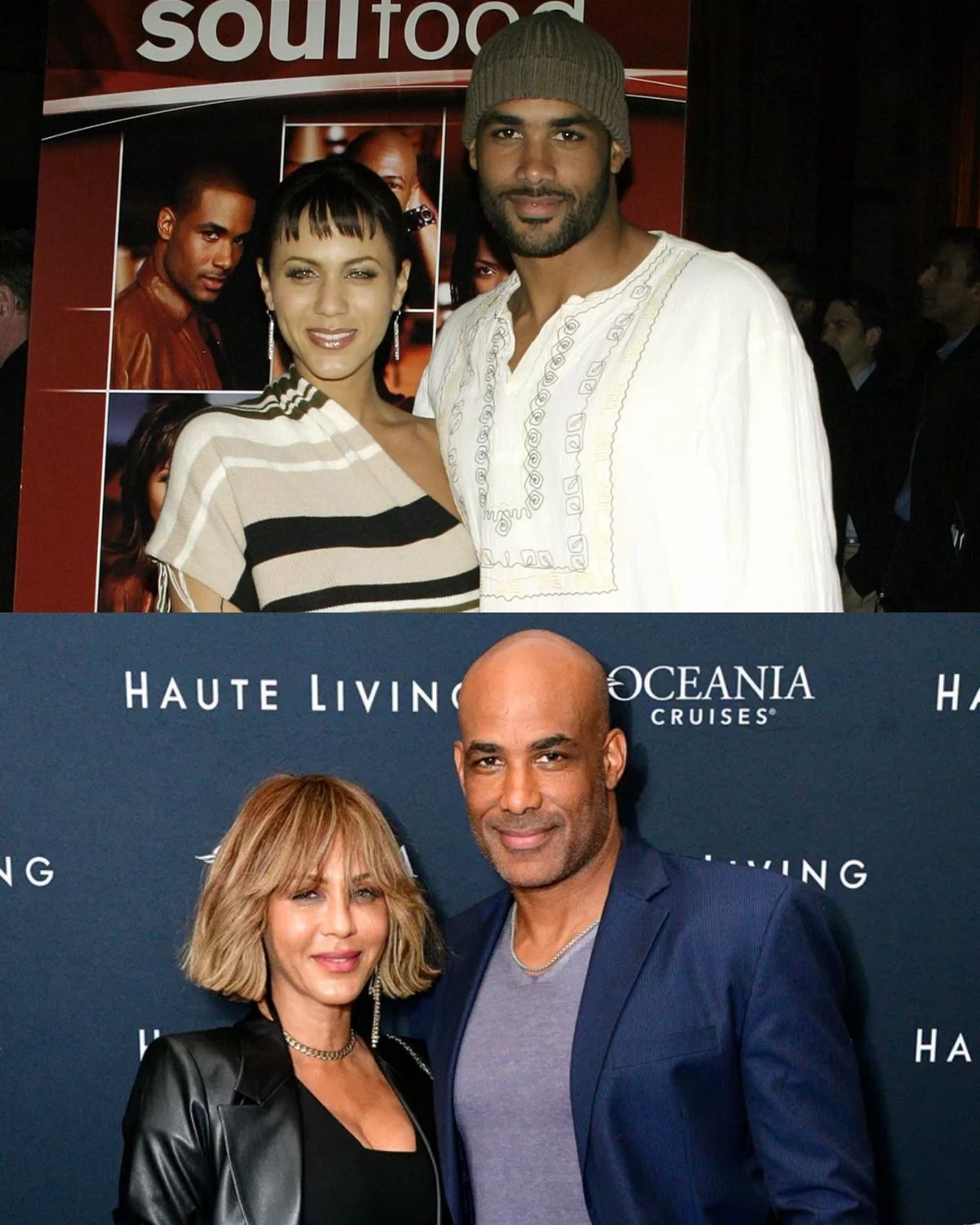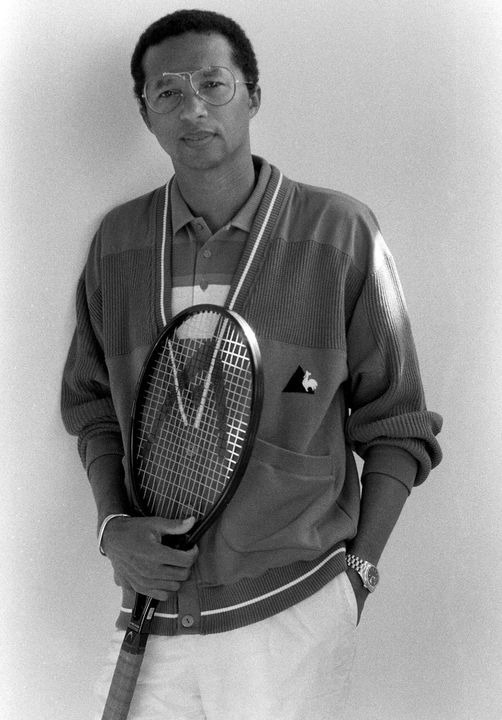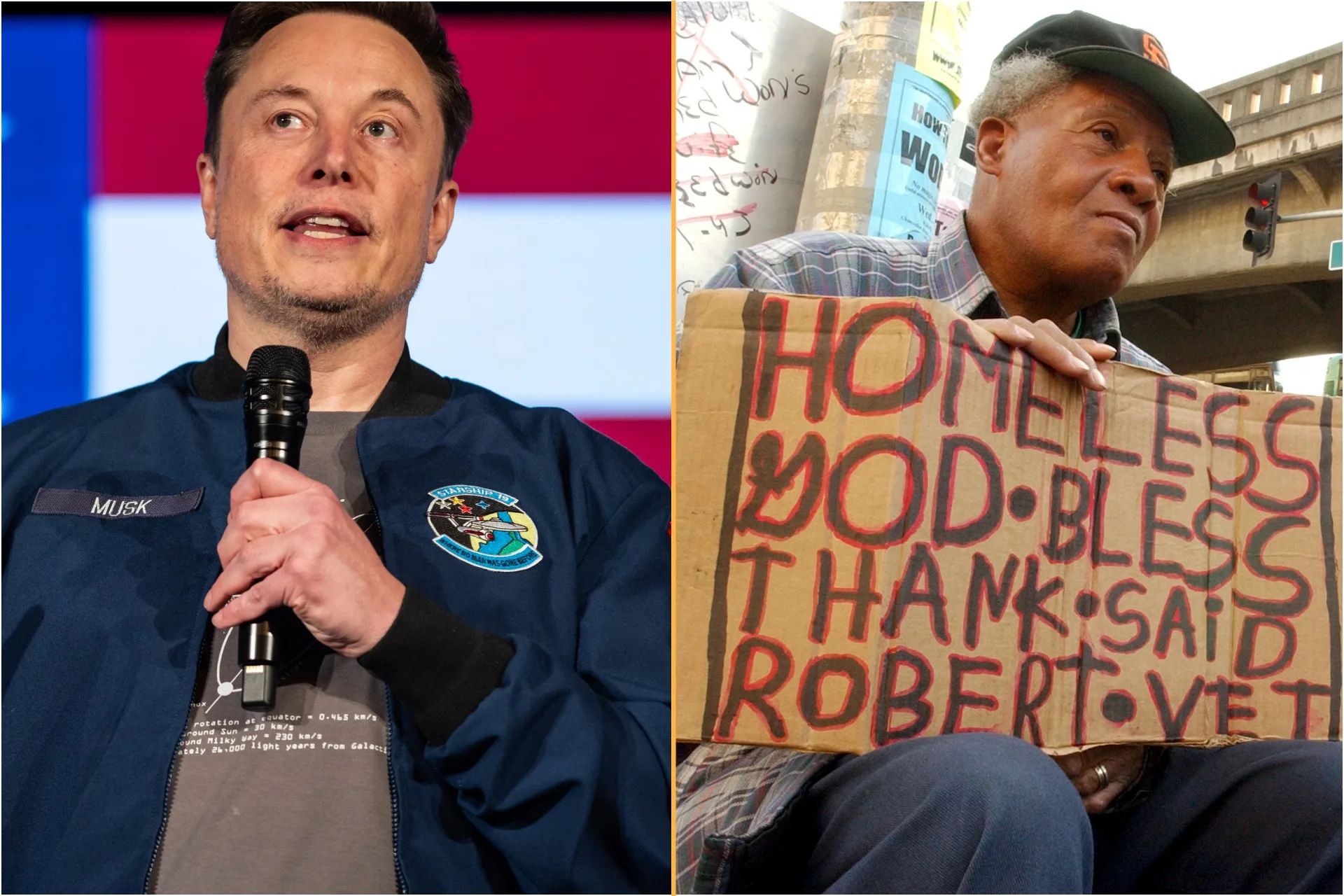Before Shamaria Engram first decided to pursue a career in STEM, she dreamed of working for the FBI and bringing criminals to justice.
Little did she know, the pursuit of her professional goals would not only lead to her switching career paths, consequently becoming the first Black woman to earn a Ph.D. in computer science and engineering, but also breaking a long-standing glass ceiling and becoming a trailblazer for many women also fighting to find their place within the field.
Engram completed her undergraduate studies at Bethune-Cookman University (BCU) in Daytona Beach where she majored in computer science. The transition from a historically Black college to USF came as a shock to her, leaving her feeling as an outsider.
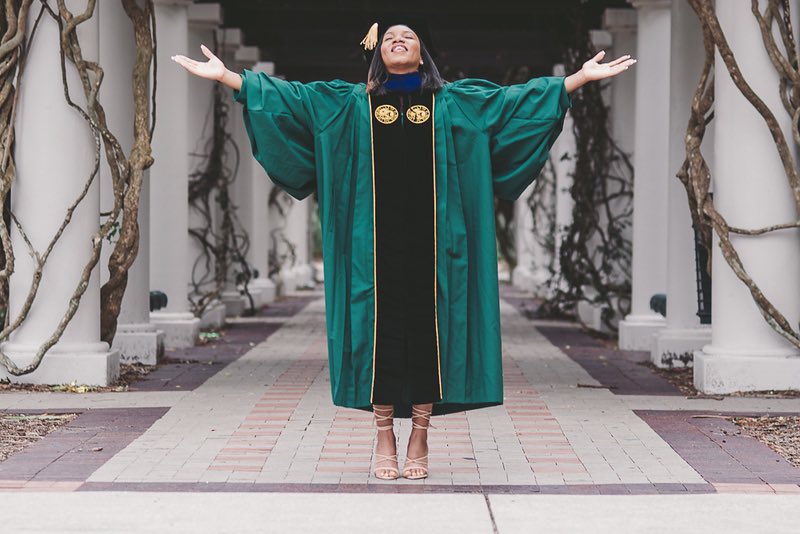
“It definitely was a little uncomfortable, because it was definitely a culture shock going from a predominantly Black institution to a predominantly white institution,” Engram said. “I mean, it’s just something I had to deal with and overcome. I definitely felt pressure at times, maybe it’s just pressure I was putting on myself because I didn’t want anyone to look at me differently because I was the only Black woman there. And … because I didn’t want to [have] people stereotype me.”
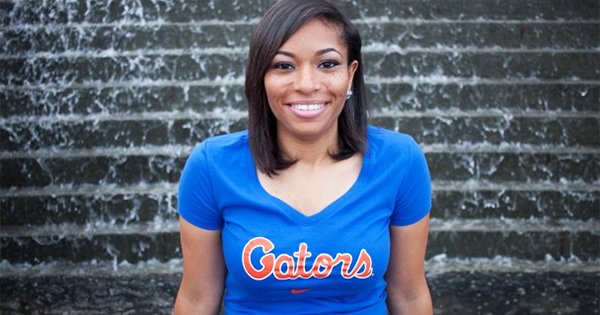
When she arrived at USF, she found there was an underrepresentation of women, especially Black women, in the computer science and engineering program. The pressure of being the only Black woman in the program led her to prove that she could perform just as well as everybody else.
“I was the only Black woman in the computer science and engineering graduate program up until about maybe two or three years, and then there were a few women,” she said. “But as far as Black women, I was the only Black woman up until … two or three years in.”

While pursuing her Ph.D., Engram encountered instances during which some of her colleagues expressed intolerant attitudes and behaviors. While attending a software conference in 2019, she experienced an act of racism that made her feel uncomfortable and singled out.
“I was eating breakfast with a bunch of students from other universities, and I think there was some other professors from other universities,” Engram said. “And one of the keynote speakers came over to the table and he shook everyone’s hand at the table, except for mine. So it couldn’t have been because I was a woman, because there were other women at the table. He shook their hand. So it was because I was a Black woman, I guess.”
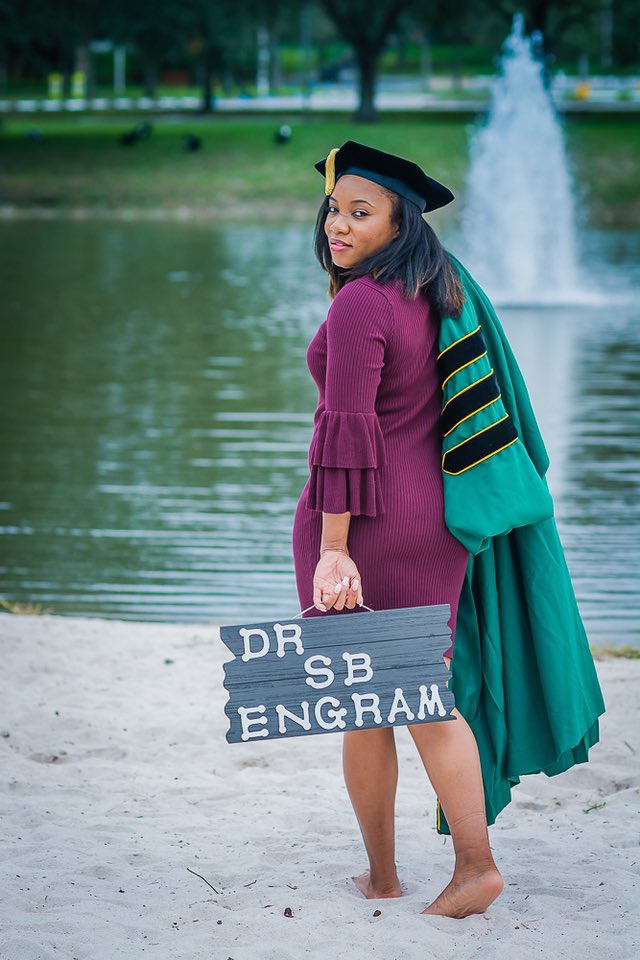
However, Engram said she had to push through those experiences and overcome the barriers set on her way.
“It’s just something that you just have to keep working through and hopefully educate people and help them to understand that, you know, just because I look different from you, doesn’t mean I don’t deserve to be treated with the same respect.”
Her interest in computer science began in high school when she met an FBI agent who advised her to pursue a degree in either accounting, computer science or engineering to increase her chances of working for the agency.
“So that’s when … I went back to the drawing board and started researching more and trying to see what I might be interested in,” Engram said. “So when I looked up more about computer science and computer engineering, that’s when I was like, ‘OK, maybe I’ll give this a try.’”
During her time at BCU, Engram built long-lasting relationships with people at the university who helped shape her career path within STEM.
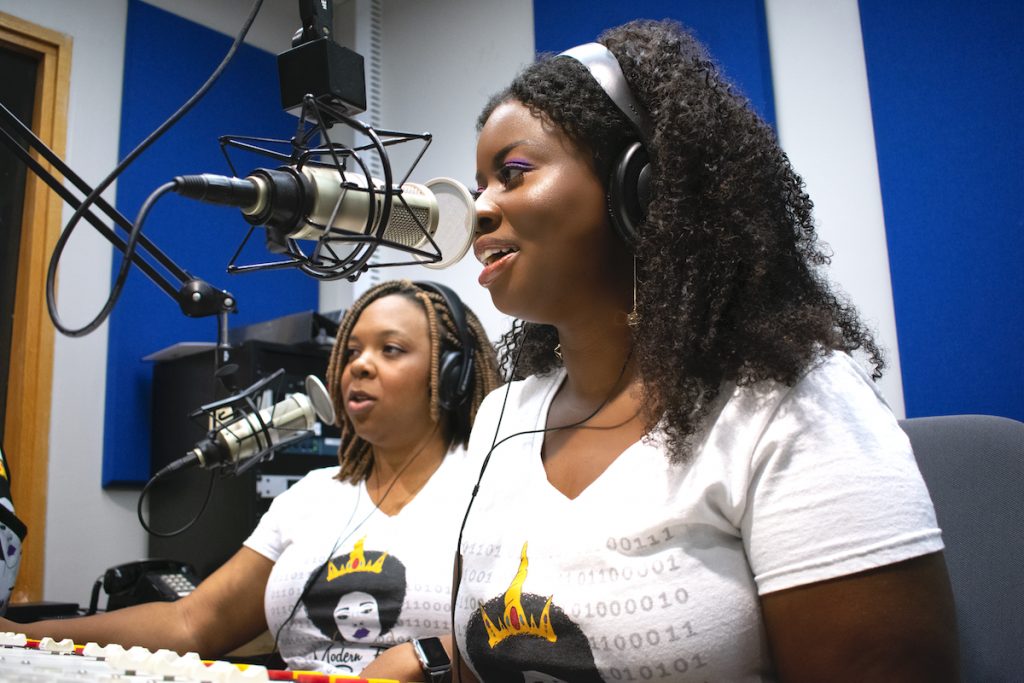
After four years as Engram’s adviser, Morrison Obeng, an undergraduate adviser at BCU, said she became like a daughter to him. He was surprised at how organized Engram was with her studies, especially while being a player on the college’s softball team.
“She is focused, she knows what she wants to focus on and works hard,” Obeng said. “Time management was very important [to her], and also being dedicated and focused, not spending her time on frivolous things that would not benefit her goal.”
Engram said Obeng was one of the people who motivated her to apply for research internships and helped her through the process of building her resume. She finally landed a position as an intern at Iowa State University, an experience that inspired her to pursue a Ph.D.
“That internship basically introduced me to research, and so when I was doing the research, I realized that there was just so much more to the field that … I wanted to know about and didn’t know about at the time,” she said.
Obeng continued to expand Engram’s network and introduced her to Bernard Batson, director of Engineering Diversity Programs at USF, in fall 2014. By fall 2015, she was already starting her doctorate in computer science and engineering at USF.
She said the hardest part about getting her doctorate at USF was staying motivated.
“It was a long process, I was there for, you know, a little over five years. So when you’re doing the Ph.D., sometimes you feel like there’s no end in sight,” said Engram. “Especially when you’re trying to do your research, and maybe your paper gets rejected from a conference or something. It is definitely discouraging. But then it’s like, all of a sudden once you get that one acceptance, the light turns on and then everything moves along, but that was probably the hardest.”
While working on her research, she made space in her schedule to get involved in the community. Batson said it was apparent from Engram’s time at USF that she wanted to have a positive effect on others.
“Apart from her research in software security, Dr. Engram helped to recruit other minority Ph.D. students during diversity meetings, participated on panel sessions, served as a teaching assistant and as a mentor for K-12 students locally,” Batson said. “She has a clear perception of the world and how she wants to make a difference. Dr. Engram always sees the big picture and strives to help others to achieve.”
Erica Dasi, Engram’s friend and a Ph.D. candidate in USF’s Department of Civil and Environmental Engineering, whom she met through the Sloan Scholarship program — which funds local Ph.D. students who identify as Black, Hispanic or Native American — described her as determined.
“It just seemed like she didn’t let any barriers stop her from arriving at her prize,” Dasi said. “Whenever she encountered a roadblock, she wouldn’t see it as something that would discourage her.”
While both of them were completing their degrees, they used to hit the gym together. Even while exercising, Dasi said she still admired how tenacious Engram was.
“This is what I always admired about her. She just gave her best effort,” Dasi said. “Even if it was a difficult exercise, she would push herself to her limits. And I think that’s something that I found very inspirational, because I saw that [if] she can do it, I can do it, too.”
Dasi added that Engram worked hard on her success and on supporting those around her.
“When I think of Shamaria I think of … a peaceful place. She’s very down to earth and when I think of her, I think of community and support,” Dasi said. “And not only is she striving for her success, but it’s also to bring other people with her, like any time our fellow peers in our scholarship have a success, she’s right there celebrating and cheering with them.”
After five years at USF, Engram completed her Ph.D. in fall 2020. Her accomplishment has been applauded by many people, including Batson, who said she became an example for other women in the field.
“First, it is a tremendous accomplishment for Shamaria and her family. We are grateful for the support she received from her family, peers and mentors,” Batson said. “Second, I think of the legacy of the late Katherine Johnson and her colleagues at NASA as well as other ‘hidden figures’ in STEM who broke barriers in their careers. They demonstrated what Black women like Dr. Engram could achieve if they were only given the opportunity.
Engram said she is proud of her accomplishments but was surprised to learn she made history in her program.
“For me, it was definitely something that I was proud of. It is sort of bittersweet. So, you know, I was happy, because I accomplished it, but at the same time, I was thinking, it’s 2020 and we haven’t had the first [Black woman graduating from the program], and so I’m glad that I was the first one.
“I hope that the department continues to recruit Black women [to] the computer science engineering program. I certainly want to do whatever I can to help that to continue on and to make sure that I’m not the first and only one.”
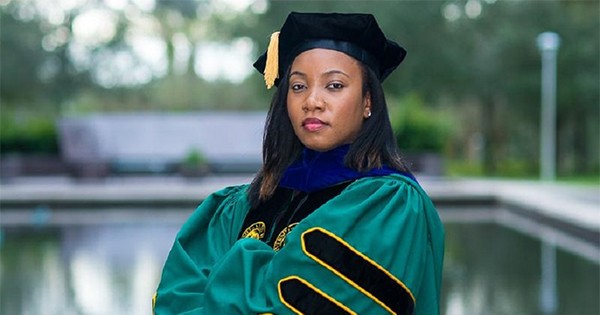
Upon graduation, Engram received a job offer at the MIT Lincoln Laboratory, where she currently works as a member of the technical staff. Although being an FBI agent is still in the back of her mind, she is happy with her job and wants to continue growing in it.
Regardless of the place she lands, Engram said she will continue to pursue her goals and work toward bringing more women into STEM.
“I also want to help with … diversifying everywhere that I go, I just want to help with diversity,” Engram said. “Because being a woman in computer science is hard enough, and being a Black woman is even harder in computer science, because there’s not [many of us]. Everywhere I go, I’m either the only one or one of a few. So I think wherever I go, I definitely want to make my mark in helping to diversify wherever I’m at and pushing the importance of that.”
